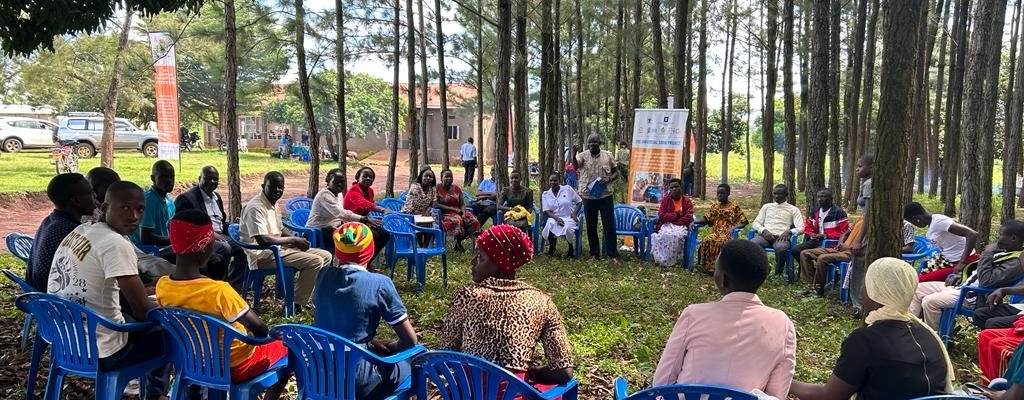Jennifer, a 17-year-old female from Kasolwe, Kagumba Sub County, has a story of resilience and hope emerging from adversity. Initially anticipating a restful holiday at her sister's place, she instead faced a tragic incident of sexual assault by a man.
“A few weeks after returning home, I started feeling weak, sleepy and I would vomit several times. My mother got worried and took me to the health center for a checkup. When I got the news, I was pregnant, I was so shocked, and scared I cried, imagining how all my dreams were now washed down. When my father was informed of my condition, he told me I was a prostitute, and he would not waste his money on me so I should go back to the owner of the pregnancy. I felt alone and abandoned when my father said that, and I started thinking of killing myself. Each morning, I would think this is my last day.”
Jennifer's story highlights the challenges many young girls and women endure, underscoring the importance of support and understanding in such situations. She was identified during a targeted mobilization by a Young Community Based Trainer. “I was counselled, skilled on how to use contraceptives, and linked to Kasolwe Health Centre II for antenatal care. That is where our weekly meeting venue is for Cannan YSLA group, where I am a treasurer.”
The Youth Savings and Lending Associations (YSLAs) under this program bring together young mothers and other young women and girls who are vulnerable to becoming victims of sexual and gender-based violence.
“Joining the YSLA group became my anchor, offering understanding and acceptance, a safe space for me where I shared my burdens and found strength. The psychosocial support and vital SRHR information I received during the group session empowered me to make informed choices. I have borrowed money from the YSLA group's SRHR fund, which is a testament to our group's collective spirit. It has eased my financial strain of childbirth in Kamuli Hospital.”

Catherine is another girl who has benefitted from our SRHR program in Kamuli district. Her transformative journey from being a shy girl plagued by societal judgment to a confident advocate for sexual and reproductive health is nothing short of inspiring.
“I used to be a reserved girl who would avoid social interactions because of the criticism and judgment people directed our way due to my mother’s mental health issues. Public gatherings were a cause of anxiety for me, and I would try to blend into the background hoping not to attract any unwanted attention,” she said.
“Everything changed when I Joined Gemakumwinho YSLA. It wasn't just about acquiring knowledge on Sexual and Reproductive Health; it provided me with a safe space where I discovered my voice, my strength, and most importantly, my self- worth. Those group meetings became my haven, where I gained the confidence to openly share about SRH with my fellow girls. I am happy that I am now involved in making reusable sanitary pads. This has reduced the stress of constantly looking for money to buy disposable pads."
One of the negative social norms affecting girls In Busoga region in Eastern Uganda, is that parents often force girls who have started menstruating to get married. Catherine has also supported other girls in her community who have been forced to get married after they started menstruating.
"One day after our health club meeting, I was approached by a 14-year-old girl whose dad had forced her into marriage because she had started menstruation. I engaged the girl’s Ssenga (Aunt) and together we explained to the girl's dad that menstruation does not mean a girl is ready for Marriage, it's normal and part of growth and development. The dad was hesitant but after several engagements with teachers as well, the dad agreed to continue paying fees for the girl."
Norway is committed to protecting and promoting universal access to sexual and reproductive health and rights for all. Our work in Uganda targets over 270 000 youth in Eastern Uganda, where indicators for teenage pregnancies and gender-based violence are the worst across the country. Our hope is that this program will help Uganda to achieve its goals of eliminating child marriage and teenage pregnancies through promoting equitable access to SRHR services.
Written by: Andrew Byaruhanga, Program Advisor, Royal Norwegian Embassy in Kampala
